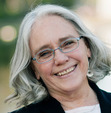Wicked Wednesday- Prose and Cons

Jessie: Enjoying the first blooms of spring!
As we continue our discussion of prose and cons I offer up this quote by one of my favorite authors, P.G. Wodehouse:
“Always get to the dialogue as soon as possible. I always feel the thing to go for is speed. Nothing puts the reader off more than a big slab of prose at the start.”
So Wickeds, do you agree or disagree with that statement? Is early dialogue a strategy you employ in your own writing?
Julie: Another great question, and a great quote. I usually have early dialogue, but sometimes it’s internal dialogue. And if it’s the first book in the series, there will be more prose to start, since you have to place the reader. One thing for sure–I will pay more attention to dialogue placement for myself, and for the books I read.
Liz: I definitely like to jump right in with dialogue. It definitely propels the story forward, and it is one of my favorite things to write – I find it really fun. I also agree with Julie’s caveats above. Sometimes inner dialogue is necessary to set the stage.
Barb: I agree with this quote. (And probably wouldn’t disagree with anything much Wodehouse said about writing.) I LOVE writing dialog. For me, it’s the easiest thing to write and really gets those words down on the page. Dialog reveals character, reveals situation and reveals setting. There isn’t much it can’t do.
Sherry: I went back through some of my books and the dialogue gets earlier and earlier as I wrote more. Like Barb, I love writing dialogue, but I also like to use a lot of inner dialogue. I always loved Robert B. Parker’s books because they are so focused on dialogue.
Edith/Maddie: I also love writing dialogue. My latest two published books both start with it. I remember when I wrote the start of A Tine to Live, a Tine to Die, my second mystery, for my Local Foods proposal, I started with several pages of prose setting up the scene. Those ended up on the edit-room floor, so to speak. “Come to the party late and leave early” is a great rule of thumb, and what is a party if not dialogue?
Readers, do you love books that are heavy on dialogue? Why or why not?



